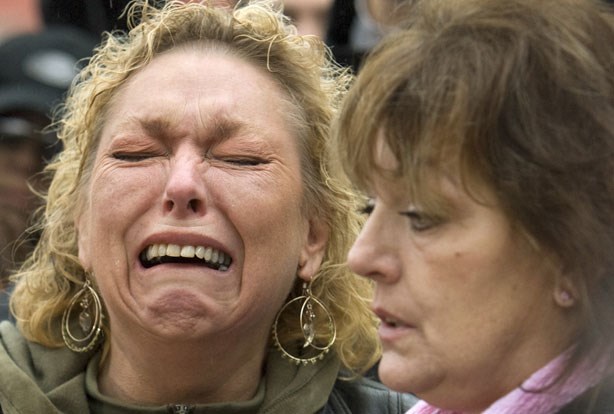Ernie Crey, Lillian Beaudoin, and Heather Joesbury all share the terrible knowledge that police could have caught serial killer Robert Pickton sooner and spared the lives of their sisters.
And all agree that any review of the case ordered by the sa国际传媒 government needs to be led by someone independent and beyond the influence of politicians, bureaucrats and police.
Ernie Crey, whose sister Dawn disappeared more than a year after Pickton likely should have been caught, said yesterday that Attorney General Mike de Jong and his cabinet colleagues might have the power to order an inquiry, but should not have control over the questions that inquiry asks or how it is structured.
"Should it all fall to the government to decide what those terms of reference are?" he said. "Like Michael de Jong and a bunch of lawyers on his staff and some cops? No, it shouldn't.
"And if that were the case, that's what would heighten the level the suspicion. People would lose confidence [in] an inquiry of that nature."
Crey said aboriginal groups and social agencies on the Downtown Eastside should have some input into how the inquiry takes shape. He'd also like to see the government appoint a female judge "with a lot of compassion and patience" to head any inquiry.
Calls for an independent review have mounted since the release of Vancouver police Deputy Chief Doug LePard's review of the case, which concluded that investigators had compelling evidence pointing to Pickton by August 1999 -- 21/2 years before his arrest.
Over that period, 14 women went missing and their DNA would later be found at Pickton's farm in Port Coquitlam. Of those, Pickton was convicted of killing three, and charged with killing eight. Police recommended charges in the other three cases, though none was approved.
Former solicitor general Rich Coleman has said the government will order a "transparent review" of the case. Cabinet will decide whether the review will be a public inquiry, judicial review or some other type of probe.
Lillian Beaudoin said she is increasingly convinced that a wide-ranging public inquiry is needed to figure out why her sister, Diane Rock, had to die.
"It makes me mad," she said.
"My sister was the second-to-last victim and I've learned they could have arrested him much earlier."
Rock was last seen in October 2001. "The more I read, the more aggravated I get," said Beaudoin, who lives in Welland, Ont., where Rock grew up.
"It is shocking that two police departments couldn't get their acts together. They are there to protect us and they didn't protect her."
Beaudoin wants a public inquiry to unearth the full story, followed by recommendations that will help protect women in the future. But she said the difficulty will be finding someone to conduct the inquiry who does not have the prejudices against drug addicts and prostitutes that she sees in police and politicians.
That could mean having a woman in charge, she said. "Men are more likely to be prejudiced. I think women are less likely to be biased."
Beaudoin hopes the death of her sister may bring about changes that will help others, including more street-level help for women.
Better police training is also at the top of her list, as at the root of the fumbled investigation was an attitude that prostitutes and drug addicts could be ignored, she said.
Heather Joesbury, 22, agrees. Her sister Andrea disappeared in 2001, and her remains were found on the farm. Pickton was convicted of her murder.
"She would have been alive today, but they didn't care," said Joesbury, who lives in Victoria. "If it had been their own family disappearing, they would have been on it like no tomorrow."
Like other family members, Joesbury cannot forgive police for failing to arrest Pickton when they had the evidence, and she wants a public inquiry to not only identify the problems, but to point fingers at those responsible.
"They are waking up with their daughters and their sons, but they caused 14 lives to be lost when they could have prevented it," she said.



